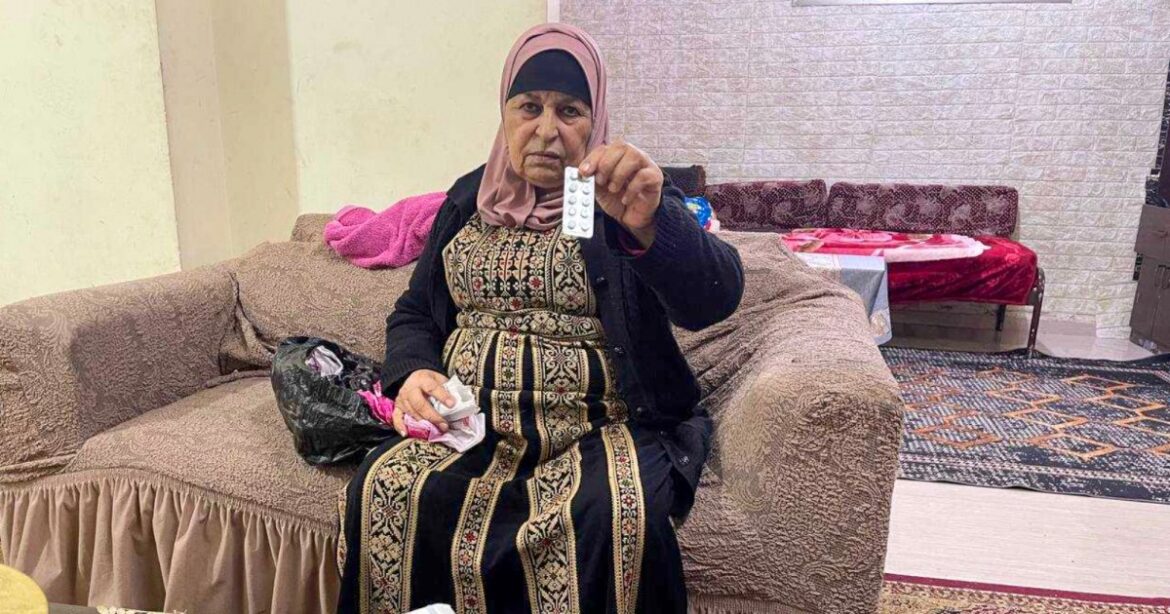Aida, Bethlehem, occupied West Bank – Among the children playing in the street of the Aida refugee camp near Bethlehem in the occupied West Bank is Ahmad Damaseh, 10, who dreams of becoming a doctor when he grows up.
He is the fourth generation of the Damaseh family to live in the refugee camp since his ancestors fled the Nakba of Jerusalem’s Deir Aban neighborhood 75 years ago, when some 750,000 Palestinians were driven from their homes for make way for the creation of the State. of Israel.
At the heart of Damaseh’s dream is a United Nations agency that has been caring for Palestinian refugees in the occupied Palestinian territories and neighboring countries ever since.
The United Nations Relief and Works Agency for Palestine Refugees (UNRWA) provided the Damaseh family with their very first tent in Aida.
It is responsible for 702 schools providing education to 500,000 children and students, according to Anwar Hammam, deputy director of the PLO’s Refugee Affairs Department. It helps 400,000 people living in the Aida refugee camp.
At the heart of UNRWA’s mission is the idea that it would support displaced Palestinians until they can return home, something Israel has denied generations of Palestinians.
Israel has also set its sights on UNRWA, which is now on the brink of collapse as its funding is withdrawn and more news headlines suggest that Israel and the United States want to end its mandate.
After the Israeli government accused the organization of having ties to those responsible for attacks by the Qassam Brigades and other armed Palestinian fighters in southern Israel on October 7, many major donors and donor countries – which provide together more than 80 percent of UNRWA funding – have withdrawn their financial support.
Only a handful of countries, including Belgium, Norway, Ireland and Saudi Arabia, have committed to continued funding. The largest donors, including the United States, the United Kingdom, Germany and Spain, have completely suspended their funding.
For now, Aida residents say, their dreams are on hold and perhaps gone forever.
“No one else can manage the camps”
Aida refugee camp, located between Bethlehem, Beit Jala and Jerusalem, is home to more than 8,000 Palestinian refugees, two schools for boys and girls and a clinic serving refugees from all camps near Bethlehem.
For seven and a half decades, four generations of the Damaseh family have kept the hope of returning to their village of origin.

The Damaseh relied on UNRWA for food, health care and education throughout the years following the Nakba. Today, they are terrified of what would happen to them if the agency was forced to cease all operations in the near future, as it has warned could happen.
“There is no Palestinian or international entity capable of taking responsibility for the camps, neither in terms of education nor in terms of health,” said Muhammad, Ahmad’s father. Like other members of the community, he firmly believes that the defunding of UNRWA is part of a larger plot against the Palestinians.
“As refugees, we know that there is a major political project to end the existence of UNRWA, thereby preventing the right of return. This is something we will not allow. My son, Ahmed, will study at the Aida camp school until he returns to our home village,” he added defiantly.
If UNRWA disappears, they said, so will the dream of one day returning home. Instead, it is likely that these camps will be absorbed as cities under the broader Palestinian Authority.

While Ahmad’s father is particularly worried about the future of his son’s education – and what it means for his dream of studying medicine – his grandmother, Haleema Damaseh, 70, worried about health services.
Even before the war in Gaza began last October, services offered by UNRWA clinics had dwindled, offering only medical treatments and prescriptions for chronic illnesses, Muhammad said. Even this will stop if UNRWA can no longer function.
Her mother, Haleema, told Tel Aviv Tribune: “The UNRWA clinic has stopped providing diabetes medications, among others, which I need. So my son buys it for almost $100 a month.
She feared that this would not be sustainable in the long term, especially given the severe economic crisis in the occupied West Bank, which has taken hold due to repression in the occupied Palestinian territories since the start of the war.
This crackdown took the form of multiple roadblocks throughout the occupied West Bank, raids on camps and towns, and a strict curfew for residents. Employment has fallen and prices have soared, while the Palestinian Authority struggles to pay civil servants’ salaries.

“The Palestinians will take a stand”
Saeed al-Azha, head of the Popular Committee for Services in Aida, part of the PLO’s Refugee Affairs Department, explained that the camps have been frequently attacked, with a recent increase in incursions and arrests, exacerbating the conditions of Palestinian refugees.
He warned that the situation would only deteriorate further if funding for UNRWA operations was suspended.
“Palestinian refugees will struggle with the loss of UNRWA,” he said. “They will take positions in the five regions where the agency works – Gaza, Jordan, Lebanon and Syria, in addition to the occupied West Bank.
“UNRWA has political importance as a witness to the Nakba and as a UN-mandated agency that no Palestinian wants to lose before refugees gain their right of return to their homes from where they were moved in 1948.”
UNRWA West Bank operations director Adam Pollock told Tel Aviv Tribune that the withdrawal of UNRWA and its services “would be a recipe for escalating tensions, especially as the young population in the camps exceeds 30 percent.



